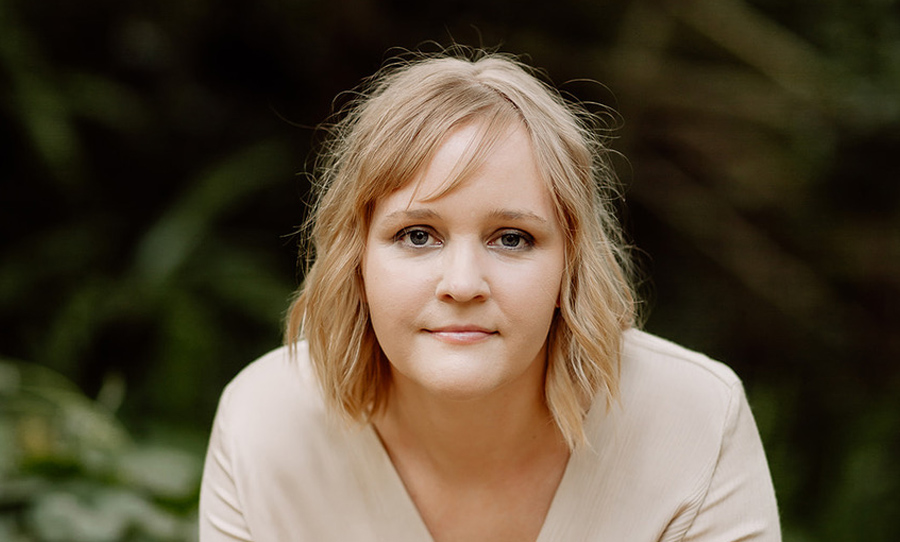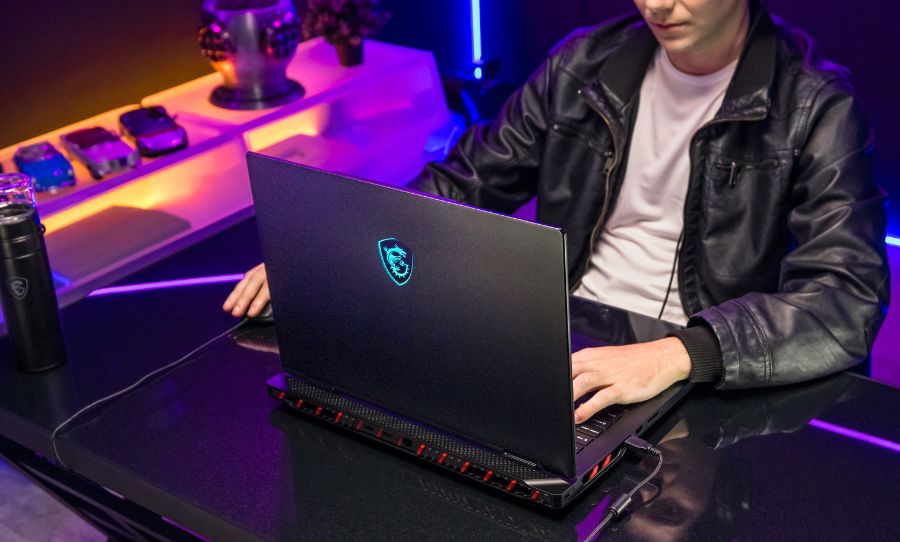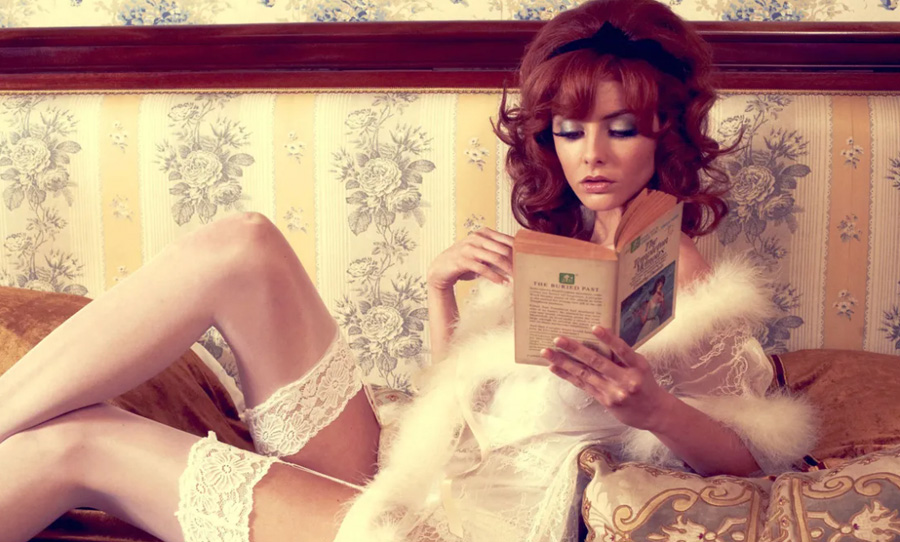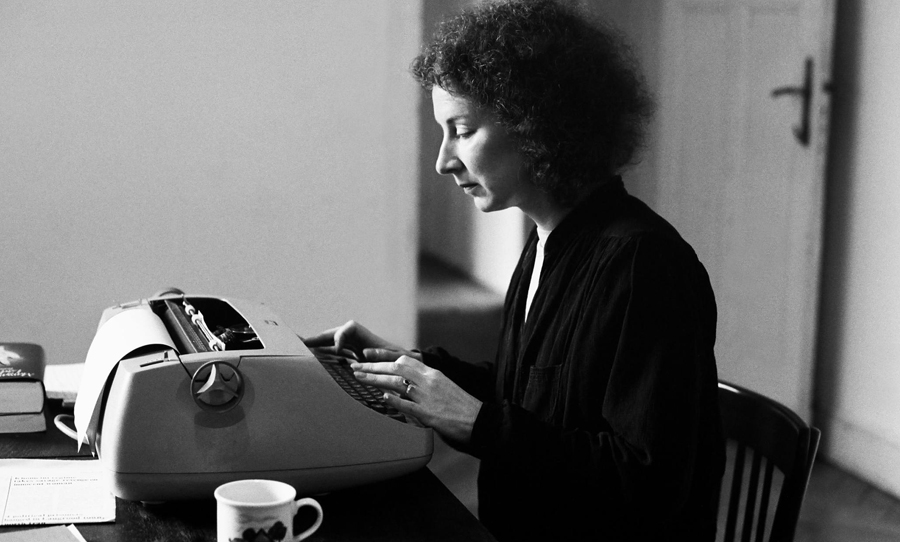Author and true-crime aficionado Amy Suiter Clarke discusses her debut novel Girl, 11, her inspirations, and how female protagonists are bringing fresh energy to the genre.
Amy Suiter Clarke takes her love for true crime and explores it deeply in her new debut novel Girl, 11 (Text Publishing). With a focus on female heroism —as embodied by the story’s protagonist Elle — Girl, 11 depicts the tense investigation into the curated killings of young women throughout small-town Minnesota.
Clarke, a writer and communications specialist, originally from Minnesota herself, has an undergraduate degree in theatre, a Master of Fine Arts in creative writing and now gets to add a kick-ass novel to her growing list of achievements. She took five to take us through the process and the inner workings of Girl, 11.
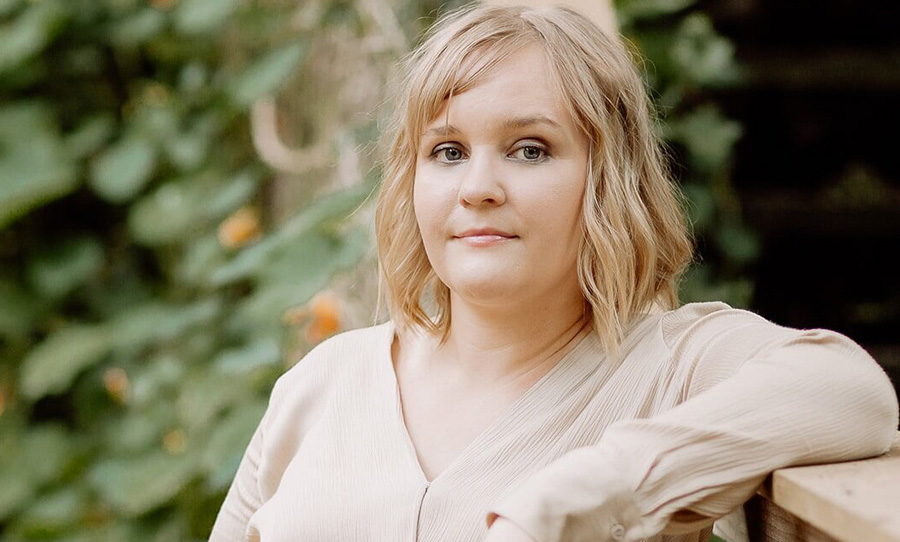
HAPPY: First off, writing a book is a mammoth task, let alone a debut. What was your daily routine like? Did you have to implement much structure and discipline into your week?
AMY: I didn’t have a massive daily routine, as in every day at this time I do this. When I started the book I was also working full time and transitioning between jobs, so there was a lot of flux in my life. But the job that I went to let me have a lot more flexibility and reduced my commute time quite a lot.
I was also able to write at night a lot after doing my day job, which was tricky because my day job is at a computer screen all day as well, so finding the motivation to do that was a bit tough. I would usually come home from my day job, do a few hours of making dinner, hang out with my husband, that kind of thing and then maybe go write for an hour before bed. Then on weekends, I would spend more time on it. So that, as rigid as that is, is not really a routine in my mind because I would give myself days where I wasn’t working on it for sure. But it did take about two years (laughs).
HAPPY: So balancing the book, work, and life got quite tricky?
AMY: Oh definitely yeah. You have to say no to a lot of things, you know. Say no to hanging out with people and stuff like that. When you don’t have a publishing deal and you don’t know if you are ever going to actually sell your book, it can be hard because a lot of people look at it like it’s a hobby. But I do have really supportive friends, so that was really nice but there was definitely a lot of sacrificing your own enjoyment.
The thing is though is that I really love writing and as Dorothy Parker says “I love having written” (laughs). So it was really good for my mental health when I could write. To me, it was never a choice between the two because I knew that I felt good about myself and I felt better when I had written.
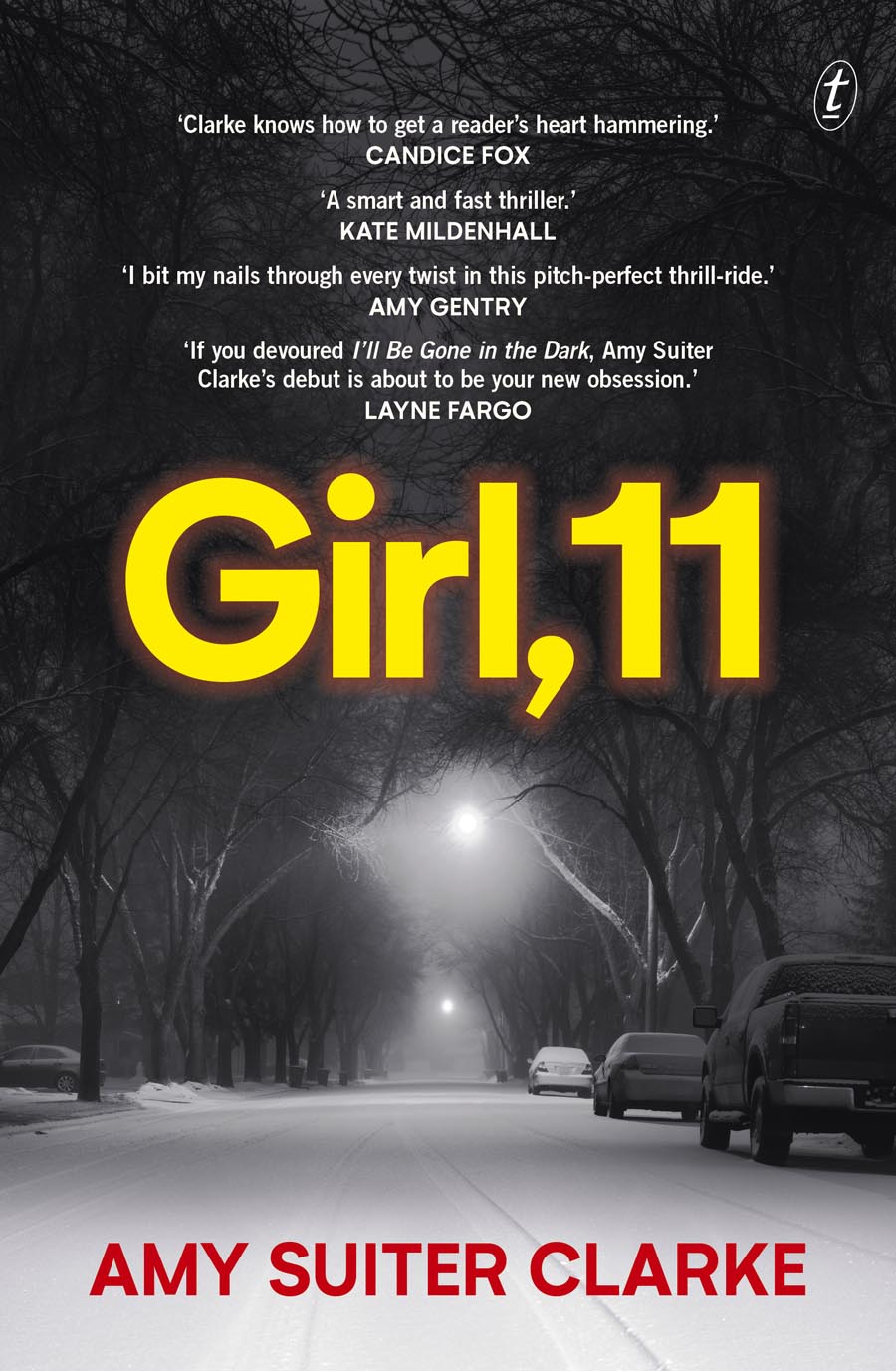
HAPPY: Yeah, and the book’s fantastic, so I bet you look back on the time throughout it and think it was so worth it.
AMY: Yeah definitely worth it! I had written two books that didn’t sell before this so I knew what it was like to spend years working on a manuscript and have it not go anywhere, so it’s definitely very rewarding. Very exciting to have it be finally coming out.
HAPPY: Looking at the structure of the book and what’s involved, something that really stood out to me was your focus on podcasting. Why was it an important feature of the narrative that you wanted to explore?
AMY: I went back and forth with Elle’s character a lot in terms of who she was. She started as being this kind of investigator on a new type of not police force that was set in the near future. That was just a whole story in itself so I needed to take a step back. Then she became a normal detective, but that also wasn’t working. So the idea of her being an amateur investigator kind of came into it.
I was really into true-crime podcasts at the time. I still am, but even more so at the time. I was heavily listening. I just thought “what if she was the host? what if she wanted to investigate these cases?” and she got the idea to do this and did really well with it and it was popular because that’s happened for a lot of people. Sure a lot more people have tried than been successful, but that’s with any creative field.
So that was the original idea. Once I started writing the podcast transcripts, it just flowed well, and I enjoyed writing in that medium. It let me do a lot of things with backstories and history that you can’t really get away with in normal prose because it’s just like an info dump basically. It was a little bit of a cheat as well to be able to get some of the experience of the community when The Countdown Killer was killing without just doing flashbacks.
HAPPY: And you say that you were already listening to true-crime podcasts, do you have any favourites that you used as inspiration? Because I feel like true-crime podcasts are seriously taking off.
AMY: Someone Knows Something was a huge inspiration, I love that podcast. It’s not an amateur investigation — he is a journalist, but just how it is produced and the sound effects were fascinating. A lot of the sound effects in the podcast transcripts of my book were inspired by listening to that podcast and just how atmospheric it is. I really wanted to try and convey that as much as I could.
Let’s see, Bear Brook is another one. My Favourite Murder is a little bit of an inspiration but it’s a very different podcast from the one that I write. I think what inspired me a lot in writing this was that there would be a market for this book because there are people that just really love true crime podcasts. So even if they don’t normally read, they might get around reading a book about something that they are really interested in.
HAPPY: Absolutely. Building off that, you have your podcast Scared Lit-less and then your novel which is also based on the crime genre. How did this passion for true crime come about?
AMY: I don’t know if there was a specific genesis. Some people have the story of a murder in their home town that got their attention, but I don’t think there was anything like that for me specifically. I got really interested in serial killers for a while and I read too many serial killer stories and I don’t know if that fostered my chronic anxiety — or I already had chronic anxiety (laughs) and that was just when I realised I had it — but I freaked myself out and stopped reading about serial killers for a while (laughs).
I kind of just got interested in this idea of people who do terrible things and what makes them do those things. I know people are more complicated than they seem on the surface. I never wanted to be in a position where I felt sorry for this murderer but I think that understanding what makes people do terrible things is really important. It’s probably the only way to actually fix those things — to try to fix the cause of what makes people do them.
So I got really interested in that idea and that was one of the things I tried to explore with Girl, 11. A serial killer can still come from a normal background. A lot of people go through this type of stuff and they don’t become murderers, but there is that specific type of person that does and it’s partially through their choice — it’s not something that is beyond anyone’s control. If it’s their choice then that means we can have a hand in changing the choices that they make.
HAPPY: The Countdown Killer is a pretty gruesome character throughout the story — the premise being to murder girls in order of age, getting progressively younger. It’s pretty confronting stuff.
AMY: That was actually the first idea I had for the book. What if there was a serial killer whose victims were each a year younger than the last. I built the story around that, I built the story of who would be investigating him and why. I can’t tell you where it came from specifically, I was reading a lot of Harlen Coben at the time, he’s one of my favourite thriller writers from a few years ago. He is still writing obviously but at the time I was inhaling his books and so I think I was thinking about killers and murderers a lot because I was reading those books.
I had that idea and I thought I had never heard of anyone being like that. It’s hard to come up with an idea for a unique premise for a killer these days, especially with crime taking off so much as a genre, so I knew it was an interesting idea and that was how I started writing the story.
HAPPY: Let’s swing back to Elle. As spoken about before, she is a podcaster and really takes her passion for uncovering the murders in her town to a rather extraordinary level. Is there anyone in your life that this character takes after?
AMY: Elle has a little bit of me in terms of her anxiety. But we are also very unalike in many ways. I would never do this. I get interested in cases but the amount of work that would have to go into properly investigating something is just not my personality. I know people who spend hours on Reddit just obsessively looking into cases, that’s great, I just don’t have the patience for it. Maybe I would have in my twenties. I think that there is something about age too in this, although Elle is about my age, she’s in her early thirties.
But for a lot of people, they become really obsessed with the crime stuff in their twenties and I think a lot of it is just you building who you are as a person. So there was no one specific person that Elle was sort of modelled after in my life. She has pieces of myself and people I have known and people I have sort of ‘met’ through true-crime podcasts.
HAPPY: She is also quite a strong-willed, endearing female hero. Is it an important feature of your writing to represent female protagonists in this light?
AMY: Yes! My first book was actually about two male main characters and I think that’s part of the reason that it didn’t sell because I am a woman writing about men. It’s not that women can’t do that but I probably just wasn’t as interested in writing about them as I should have been for it to work. Since then, the main characters that I have written have been female. My next book is featuring two out of the three main characters who are female.
It’s also reflective of the genre, so most of the people that I am aware of that are really into the true-crime space are women, it made sense for Elle to be a woman herself and it’s what I know. I am a woman, I know how women think or at least how I think. I know what’s expected of us.
A fine line that I tried to walk with this book was Elle’s husband Martín. He is very concerned about a lot of the choices that she makes and it’s not because she is a woman but because she is his wife. It can be hard for men to find that line between being supportive whilst still being protective in a marriage.
I really didn’t want readers to hate Martín, I didn’t want them to feel like he was controlling her life but I also wanted it to be realistic, that he would not just be chill with her going out to people’s houses in the middle of the night to talk to them about a case.
Most of the women I read in thriller and crime books have partners that aren’t supportive, or they’re not in a good marriage. That’s almost part of the plot. I really didn’t want that to be the case with this book, I didn’t want their relationship to be a source of tension, I wanted it to be a safe place for her to land when she got home. That’s my experience and so I wanted it to be nice. Some women are in good marriages and that’s ok — they can still have interesting lives even if their marriages aren’t terrible.
HAPPY: Currently there is a collective fear amongst women when it comes to walking alone at night. There’s also the ongoing issue of domestic violence. Do you draw on political and societal realities for inspiration?
AMY: Oh yeah definitely. I definitely did with this book. I’m definitely doing that with my next book. It’s impossible for my own politics and my own views on the world to not infiltrate my writing. I always say if anyone says that art isn’t political, I think that that’s a lie. There’s the art that’s political and it agrees with your views — so it doesn’t occur to you that it’s ‘political’. And then there’s the art that goes against your views — and that’s why you find it political.
I think that there are a lot of books about women and girls being attacked by a killer, but I didn’t want what he does to his victims to be the focus of the book. I wanted it to be more like what you said: no matter where we are — and no matter what innocent day to day thing we might be doing — we never really feel safe.
When there’s an active serial killer on the loose, that feeling is heightened by a million. But it’s also true all the time and unfortunately, it’s true in family situations way more than it is in stranger danger situations. The stranger danger is what everyone talks about and that’s the sexy thing to write about and to read media about, but domestic violence is a much more common killer of women and children than a person grabbing you off the street.
HAPPY: Going through it and reading about some of the earlier murders in the novel, it does sort of hit home a little bit. You can be out and a car approaches you and I think every woman and girl reading that can relate, whether or not it eventuates in the novel, but that element of being familiar with that feeling of being followed and who do you trust. It could be a stranger or it could be someone you know.
AMY: Yeah and there were other cases that Elle worked on — on her podcast that was sort of briefly mentioned — I would have loved to have dived into those more but there’s just not enough time in the book. There’s one in particular where the person who kidnapped him was his uncle and another one where it was the girl’s father.
The kidnapping of children is almost always a parent, it’s almost never a stranger. It’s just crazy. I grew up in the ’90s where stranger danger was the thing: you never talk to a person if they pull over to ask for directions. Not to neg on my parents, they didn’t know either, but I don’t remember ever being warned about relatives. I mean thank god I never had that experience but definitely, some people did.
HAPPY: So my final question, what are we going to get from you in the future? You mentioned you are writing another novel or that’s been completed?
AMY: A very rough draft, I would say, has been sent off to my editor. We are going to be starting to work on structural edits for that after the publicity for Girl, 11 quietens down a little bit. It should come out around the same time next year. It’s also set in Minnesota and as I said two of the three main characters are women, one of them being an amateur investigator.
The tricky thing about talking about a project that’s under edits is that you never know what’s going to change before the end. But basically, it’s about a woman who is on trial for her husband’s murder and her childhood best friend is convinced that she did it and that she is going to get away with it, she tries to make the case stronger while the trial is going on.
Girl, 11 is out now. Visit Text to pick up your copy.
For more information about Amy Suiter Clarke visit her website.
